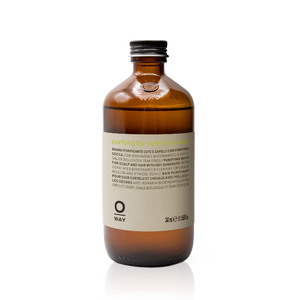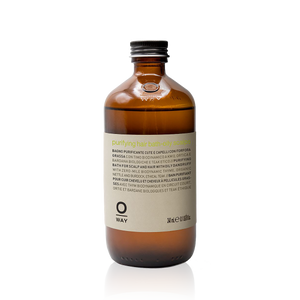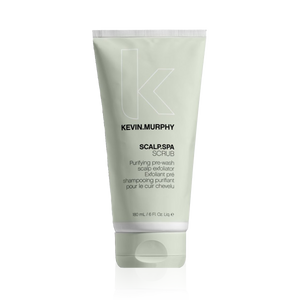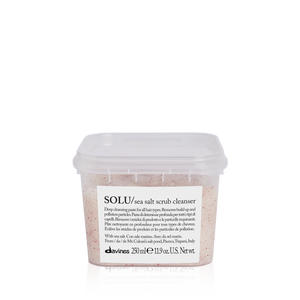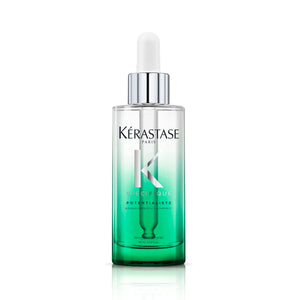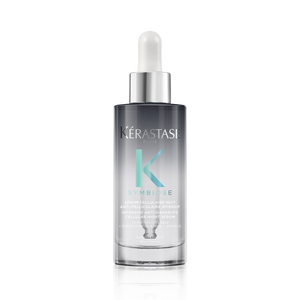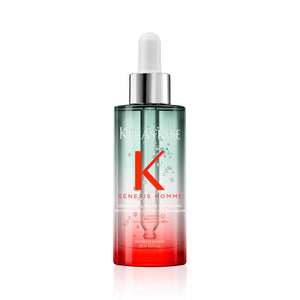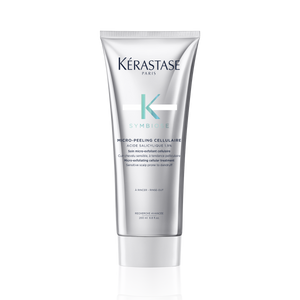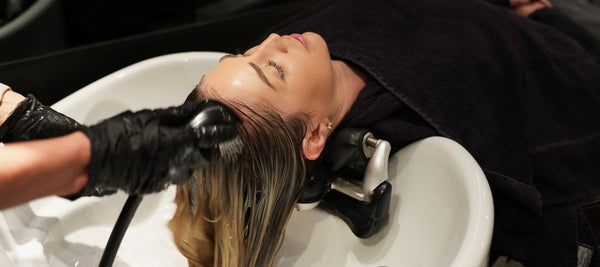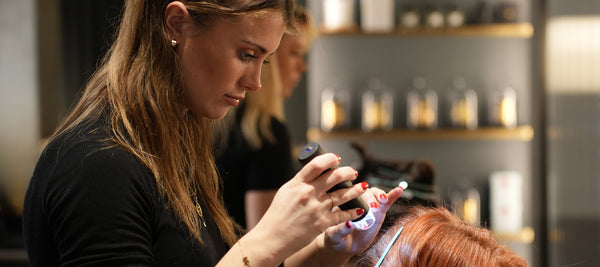Skincare for hair: Why you need to exfoliate and moisturise your scalp
The skin on your head is different to the skin on your face - in more ways than one
“You have 15 times more hair on your scalp than on the rest of your skin, which means sebum (oil) production is up to 40 times higher,” says Matilda Marshall, director at Paul Edmonds London.
“Your scalp is thinner and more fragile than your skin and cell renewal is almost double the speed, so while your skin's averaging a 28-day cycle, for your scalp it’s about 14 days.”
That’s why having a skincare routine for your scalp can help you avoid a host of hair problems, from greasy roots and dandruff to weak strands and hair loss.
“If you think of your hair like a garden, you have to have healthy soil to have healthy plants,” Matilda says.
“Your scalp is like the soil, it contains all the nutrition for your hair and provides the foundation for your hair to grow and absorb the nutrients it needs.”
Here, Matilda explains how to identify common scalp issues and why a two-step scalpcare routine can make a huge difference to your hair…
What are some common scalp problems?
Scalp-related issues can broadly be split into two categories: mild or temporary concerns that can be fixed with haircare products, and more serious issues that usually require medical treatment.
Whatever the case, there’s no need to be embarrassed about any scalp symptoms you’re experiencing. At Paul Edmonds, we take a holistic approach to hair health and can offer expert advice on how to tackle any hair or scalp problem, or whether you need to see a doctor.
“Dry scalp is essentially just like dry skin,” says Matilda. “It just needs more nourishment, a bit of exfoliation, and to get the moisture level rebalanced.”
Not to be confused with dry scalp, dandruff happens when Malassezia globosa, a healthy bacteria living on the scalp, goes into overdrive and produces skin so fast that the dead skin cells can’t be removed quickly enough and flakes build up on the scalp.
At the other end of the spectrum, greasy hair is also caused by an imbalance, Matilda says: “Sebum is like a protection barrier, so if you have anything that offsets the balance - which could be from free radicals, pollution, or even from your diet - your scalp overproduces sebum.”
A sensitive scalp can be a short or long-term issue, she explains: “For example, if you’re currently using a medication that can change your sensitivity levels or it could be an allergy you have to a certain perfume or product.”
Around half of people with psoriasis, a long-term autoimmune skin disease, report having patches on their scalp, while seborrheic dermatitis, a form of eczema which can cause similar patches, is usually easier to treat.
Weak hair and hair loss can also both be caused by scalp issues, Matilda explains: “If your scalp isn't giving the right amount of nutrients that the hair needs it's going to be more brittle. What can also happen is follicles get blocked, therefore the hair is being constricted so it grows through thinner, finer and more fragile.”
There are many factors at play when it comes to hair loss, from diet and genetics to illness and medication, so it’s important to seek advice from a health professional to determine the root cause.
How to identify your scalp concerns

It might be that a quick chat with your hairdresser is all it takes to figure out that you’ve got a couple of dry patches on your scalp and the products you need to get rid of them.
For more complex or stubborn issues, it’s best to book a Scalp Detox Treatment, where we have a choice of two special cameras to examine the hair and follicles closely.
“The K-Scan by Kerastase looks at your microbiome, meaning the healthy bacteria on your scalp, and uses AI technology to show your hair fall percentage,” Matilda says.
“With the tricho camera, the magnification is a lot stronger, so you can see density, new follicle growth and inflammation a lot clearer.”
With the latter, we can take and store photos to track progress. After the consultation, a tailored treatment is applied, then the camera is used again to see the effects.
How does scalp exfoliation help?
If you don’t have any major scalp concerns but want to optimise your hair health, using a scalp scrub once a week can help strengthen your strands.
“A scalp scrub will help remove pollution build-up, product build-up and dead cells,” Matilda says.
“For example, Davines Solu Sea Salt Scrub Cleanser contains ocean-safe exfoliating beads. It's really good for getting rid of any dry scalp and leaving a really clean surface to then be able to put your moisturising products on.”
Most scalp scrubs are applied before shampooing, while your hair is wet. It’s better to use a back and forth motion with your fingertips rather than a ‘rotary’ motion in circles to avoid tangling your hair, Matilda says: “Make sure you spread it all the way through your scalp and don’t just dollop it on top.”
Rinse then follow with a targeted shampoo. “Shampoos with salicylic acid are great for oily scalps,” Matilda says. “If you've got a scalp concern your shampoo should address that, then your conditioner is for your hair concern.”
What does scalp serum do?
The same way you use an active-packed serum after cleansing your face, a scalp serum moisturises and treats the skin on your head.
“Kérastase have a specific serum for each scalp need. Some of them are everyday serums and some are to be used three times a week” Matilda says.
“Kérastase Spécifique Potentialiste Serum helps your skin microbiome, so it's a bit like taking probiotics for your scalp. Symbiose Intensive Anti-Dandruff Cellular Night Serum is for treating dandruff and Genesis Homme Daily is for hair fall.”
If you’ve got persistent dandruff she recommends the Kérastase Symbiose Micro Exfoliating Cellular Treatment: “It contains 1.9% salicylic acid, which helps to take the flakes away and leave hair feeling really nice and healthy afterwards.”
Most scalp serums are applied to wet hair after shampooing. Use the pipette to apply a few drops and smooth over your scalp.
Find your balance
While we often put a lot of effort into cleansing and styling our hair, it's easy to forget how important it is to look after your scalp and maintain the right moisture balance.
Adding an exfoliating scrub and soothing serum to your haircare routine can prevent a range of scalp issues and promote healthy hair. For more persistent problems, talk to your hairdresser, who can recommend the best course of action.
Our relaxing and nourishing Scalp Detox Treatment is tailored to your needs. Book your appointment at Paul Edmonds London.

